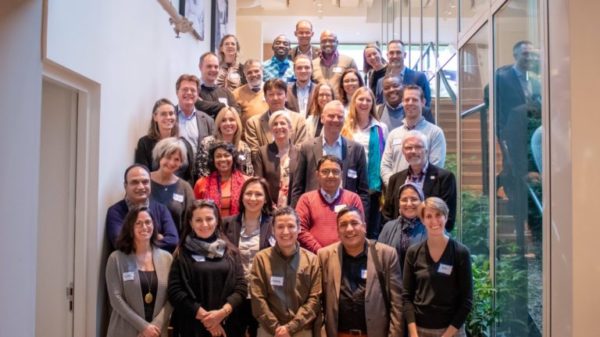21 January 2020 · Global Partnership for Zero Leprosy
Looking to 2030: Exploring implementation and national-level partnership

The Global Partnership for Zero Leprosy hosted a meeting 13-14 January in Amsterdam to gather input from partner organizations on our work with countries, in light of our goal to reach 5 more countries in 2020 and 30 countries by 2030.
The meeting was convened to achieve two objectives: to identify criteria for selecting and ranking countries for GPZL Zero Leprosy Partnerships in 2020; and create a shared model for Zero Leprosy Partnerships in countries, including partner commitments to specific roles and responsibilities.
Participants obtained a high-level understanding of GPZL’s context and overarching aims, as outlined in our Action Framework, and a shared view of success (including ownership, commitment and enthusiasm). As many of these individuals will be engaged in GPZL partnerships moving forward, getting to know each other better as individuals and finding common ground were crucial to the success of the meeting and our future work together.
Participants were selected to represent the broad scope of GPZL members as well as different areas of responsibility within organizations. Invitees included persons who have experienced leprosy, policy-makers, NGO directors, technical and/or operational experts, NGO country program directors, national leprosy program managers, pharmaceutical supply-chain managers, communications experts and foundation directors.
Working in small groups and/or large group discussion sessions, participants shared their core values and hopes for the partnership, and developed two deliverables: country selection criteria; and a model for country partnerships that includes commitments from partners on their potential roles and responsibilities of all partners. The criteria and model will be further developed by the GPZL Secretariat, with guidance from meeting participants and the GPZL Leadership Team, and will be used to select, and work in support of, five Zero Leprosy Partnership countries in 2020.